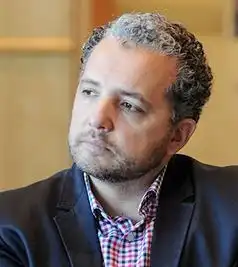Home>201217 - Managing Macroeconomic Neoliberalism: Capital and the Resilience of the Rational Expectations Assumption since the Great Recession with Cornel Ban & Oddny Helgadottir, Copenhaguen Business School
17.12.2020
201217 - Managing Macroeconomic Neoliberalism: Capital and the Resilience of the Rational Expectations Assumption since the Great Recession with Cornel Ban & Oddny Helgadottir, Copenhaguen Business School
About this event
17 December 2020 from 13:00 until 14:30
The transformations of capitalism Key Theme Seminar
Thursday 17 December 2020, 1 – 2.30 pm, Sciences Po, Via Zoom (Compulsory Registration)
There is little systematic work on how much the core of mainstream macroeconomics has changed across the different fields of the economics profession and even less on what explains the ensuing patterns of stability and change. This paper addresses this gap by mapping out debates over the core assumption of rational expectations in how high-prestige academic publications and the research of central banks of systemic importance. By deploying a sociological perspective on the various forms of capital deployed by orthodox defenders of this assumption, its radical challengers and its constructive critics, the paper makes five claims. First, although the core of modern macro has seen a more robust radical challenge than one would expect, the defense of rational expectations remained overall quantitatively dominant and substantively elastic. Second, although grants did not make a difference for the status quo, the other measures of economic capital (job stability, proximity to the corporate field) did. Third, in terms of cultural capital, the conventional thinking about the most likely institutional settings for orthodox economists are problematic and should invite more context specific generalizations. Fourth, in terms of symbolic capital, the radicals had more status resources than one would expect, particularly in terms of the ranking of their department or the reputation of their PhD, yet the radicals compare unfavorably with the status quo group when other measures of status are considered. Fifth, although the reputational capital of the defenders of the status quo amassed the most citations and top journal positions, the radicals had a stronger presence in the top journals than the orthodox. Finally, while the orthodox dominate mid-level policy positions with governments, central banks and international institutions, the radicals are stronger in these areas than one would expect. At the end of the day, however, the orthodox control the institutions of the economics profession via editorial boards and refereeing for the top journals. As such, the orthodox exercise a strong gatekeeping function that allows some pluralism yet also goes some way toward explaining their intellectual dominance.
Speakers
Cornel Ban, Copenhaguen Business School
Cornel Ban is an associate professor of International Political economy at Copenhagen Business School. Prior to this he has been Reader at City University of London, assistant professor at Boston University and research fellow at Brown University in the United States. He wrote two books and a dozen articles and book chapters on the politics of economic expertise and income distribution, macroeconomic policy shifts and organizational shifts in international financial institutions and capitalist diversity in Brazil, Spain and Romania.
His most recent book (Ruling Ideas: How Neoliberalism Goes Local, Oxford University Press, 2018) received the political economy award for 2017 of the British International Studies Association.
He is currently working on growth regimes, finance and the climate crisis, and the political economy of the entrepreneurial state.
Oddny Helgadottir, Copenhaguen Business School
Oddný Helgadóttir is an Assistant Professor at the Department of Business and Politics. Her work is interdisciplinary, situated at the intersection of International Political Economy, the sociology of professions and the history of economic ideas, with a particular focus on the production and legitimization of economic knowledge. She did her graduate work at Brown University and has been a visiting fellow at the European University Institute and Copenhagen Business School. She is currently part of a team working on the Horizon 2020 project ‘Combating Fiscal Fraud and Empowering Regulators’ (COFFERS).
Collective discussion
Contacts: cyril.benoit1@sciencespo.fr & matthias.thiemann@sciencespo.fr


